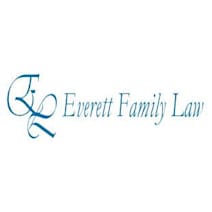Top Castle Rock, WA Racketeering Lawyers Near You
A Criminal Defense firm representing clients in Portland, OR.
1408 16th Ave, PO Box 250, Longview, WA 98632
We found a limited number of Racketeering law firms in Castle Rock. Below are some of the closest additional firms.
1801 West Bay Dr NW, Suite 207A, Olympia, WA 98502
Other Nearby Offices
The Law Offices of Jason S. Newcombe has experience helping clients with their Racketeering needs in Castle Rock, Washington.
Free Consultation
1105 Tacoma Avenue South, Tacoma, WA 98402
A law firm in Castle Rock, Washington, Michael Austin Stewart, Attorney at Law experienced in helping clients with Racketeering issues.
Free Consultation
PO Box 50, Cle Elum, WA 98922
Contact Heritage Law Office in Castle Rock, Washington for experienced legal assistance in Racketeering.
Free Consultation
1313 W. Wine Country Road, Suite 110, Grandview, WA 98930
Everett Family Law has experience helping clients with their Racketeering needs in Castle Rock, Washington.
Se Habla Español
Free Consultation
Virtual Appointments
20 SW 12th Street, PO Box 1123, Chehalis, WA 98532
1220 Main St, Suite 400, Vancouver, WA 98660
7700 NE Parkway Drive, Suite 215, Vancouver, WA 98662
2300 Main Street, Vancouver, WA 98660
1914 Broadway St., Vancouver, WA 98663-3325
612 E. McLoughlin Boulevard, Vancouver, WA 98663
108 E Mill Plain Blvd, Vancouver, WA 98660-3282
3709 E 4th Plain Blvd, Vancouver, WA 98661
655 W Columbia Way, Suite 504, Vancouver, WA 98660
1010 Esther St, Vancouver, WA 98660
Castle Rock Racketeering Information
Lead Counsel independently verifies Racketeering attorneys in Castle Rock and checks their standing with Washington bar associations.
Our Verification Process and Criteria
Ample Experience
Attorneys must meet stringent qualifications and prove they practice in the area of law they’re verified in.Good Standing
Be in good standing with their bar associations and maintain a clean disciplinary record.Annual Review
Submit to an annual review to retain their Lead Counsel Verified status.Client Commitment
Pledge to follow the highest quality client service and ethical standards.
What Is a Racketeering Violation?
Racketeering is a pattern of criminal activity carried out by a criminal organization or enterprise. Racketeering is a federal crime under the Racketeer Influenced and Corrupt Organizations Act (RICO) Act but many states have similar state RICO laws. Racketeering can include organized crime offenses, including fraud, extortion, or loan-sharking. However, racketeering can also target gang activity, corporate fraud, or corrupt government officials.
What Is a Pattern of Racketeering Activity?
The Racketeer Influenced and Corrupt Organizations Act (RICO) is the federal anti-racketeering law. In order for federal prosecutors to prove a defendant is guilty of a RICO offense, they have to show conduct of an enterprise through a pattern of racketeering activity. A “pattern of racketeering activity” requires at least two acts of racketeering committed within a ten-year period. Generally, the criminal acts amount to continued criminal activity.
Racketeering can also include collection of unlawful debt. Under federal law, collection of unlawful debt is an alternate ground for RICO charges and does not require a pattern of activity. Examples of unlawful debt collection include trying to collect illegal gambling debt, loan-sharking, or threatening harm to the victim’s family if the debt isn’t paid.
Is Racketeering a White Collar Crime?
White-collar crimes often involve fraud or misrepresentation that is financially motivated. Generally, white-collar crimes are committed through non-violent means through fraud or misrepresentation. Some racketeering offenses are considered white-collar crimes, including embezzlement, securities fraud, or money laundering. However, racketeering also includes violent offenses, which are generally not considered white-collar crimes.
What Crimes Are Covered by the RICO Act?
Crimes covered by the RICO Act include state and federal crimes. State crime racketeering offenses may include murder, robbery, kidnapping, and extortion. According to the Justice Department, racketeering activity includes more than one hundred federal offenses, including, but not limited to:
- Illegal gambling
- Drug trafficking
- Bribery
- Dealing in obscene matter
- Counterfeiting
- Embezzlement
- Witness tampering
- Human trafficking
- Money laundering
- Terrorism
- Mail fraud
- Healthcare fraud
- Wire fraud
- Insurance fraud
- Securities fraud
How Long Do You Go To Jail for Racketeering?
Racketeering charges come with severe criminal penalties. A conviction for racketeering can include up to 20 years in prison. However, jail time can include life imprisonment if the underlying offense carries the possibility of life in prison. For example, racketeering involving illegal gambling may have a maximum prison sentence of 20 years. Racketeering involving murder can result in a life sentence.
Is Racketeering a Felony?
At the federal level, racketeering is a felony, punishable by more than a year in prison. State racketeering offenses are felonies, which are punishable by more than one year. A conviction for a felony has long-term consequences that will follow the individual after release from prison. As a felon, you may be restricted in gun ownership rights, voting rights, and holding public office. A felony criminal history may make it more difficult to find housing or get a job.
How Can a Racketeering Attorney Help You?
Investigative agencies may take years to conduct a racketeering investigation. If you think law enforcement or a federal government agency suspects you of committing criminal activities, contact an experienced criminal defense attorney for advice. A defense attorney can represent you during an investigation to make sure you don’t accidentally say something that could be used against you.
Even if the district attorney’s office does have a strong case against you, a legal representative on your side can negotiate a plea agreement. A plea bargain may allow you to avoid the most serious charges, reduce your criminal sentence, and help keep your property.
If you want to fight the criminal charges, a racketeering defense attorney can build a strong legal defense, challenge the state’s evidence in criminal court, and fight to get the criminal charges dropped or win your case in court.





